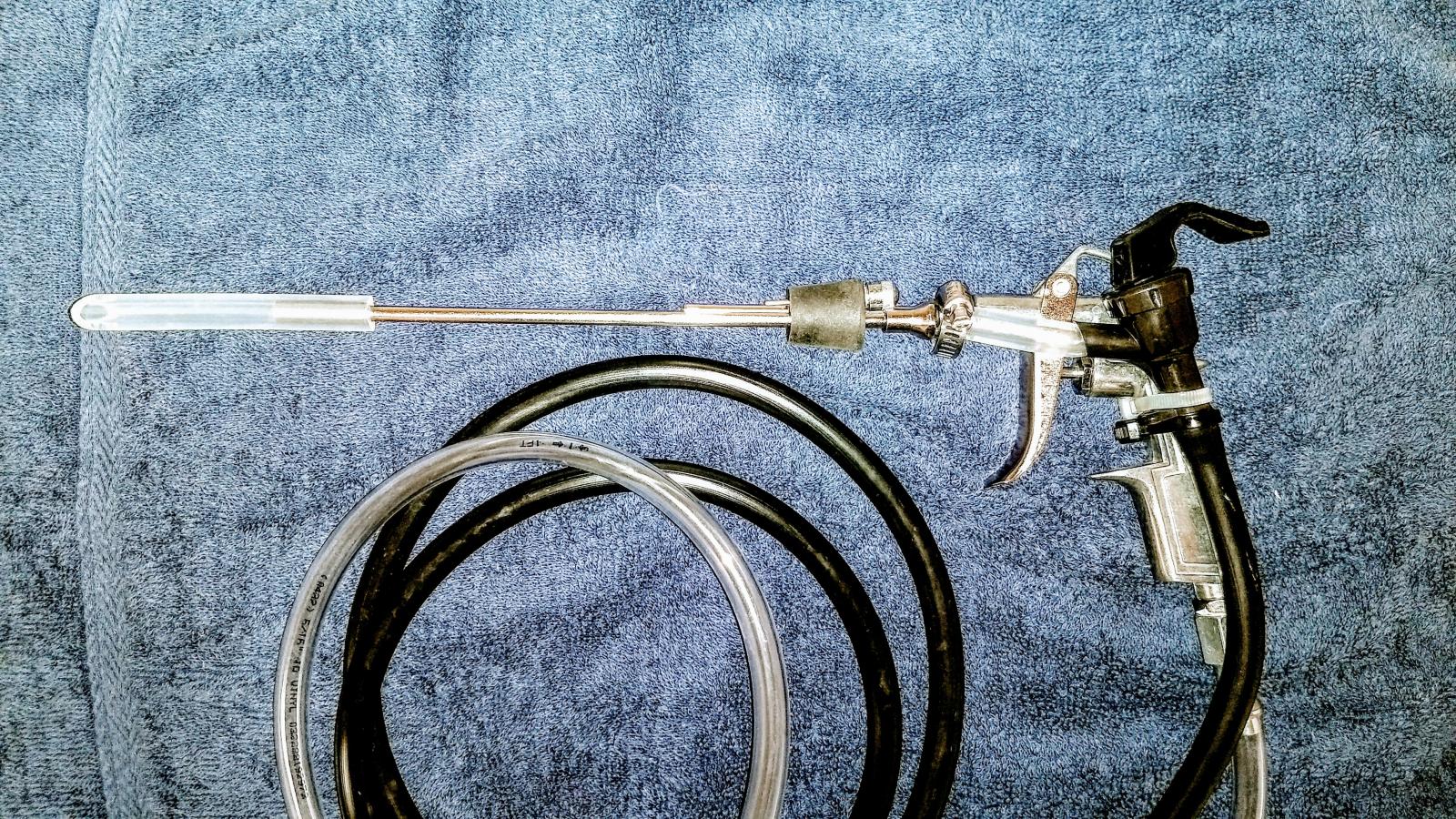I still bottle everything. I never could quite make the move to kegging. I'd be lying if I said the money had nothing to do with it. This hobby has proven to be WAY more expensive than I ever anticipated when I decided to try it out. But at this point I pretty much know it's expensive and I'm hooked, so it is what it is. I think more than the money is the idea that having beer permanently "on tap" seems... idk... fanatical... obsessive... over-the-top... It's odd because I have no problem storing 7 or 8 cases of beer in bottles. That doesn't seem weird or compulsive in the least. But having 5 gallons "on tap?" That seems like it's time for an intervention. But I digress.
I still don't think I'll ever go full blown keg to kegerator draft - but I have been thinking lately that I'd like to condition and carbonate in a keg and then bottle using a counter-pressure gun.
The clarity of my beer has never been a huge concern. Obviously I'd like it to be as clear as possible, but I've never bent over backwards or done any specific processes in my brewing for the sole purpose of clearing the beer. I might throw a Whirlfloc tab in the boil at 10 min (when I remember), and occasionally I'll cold crash and add some gelatin before bottling - but that's the extent of it.
All that being said, I've been seriously considering buying some kegs to use for conditioning. I'm interested in hearing feedback from people who do this to hear the pros and cons so I can decide if it's something I want to invest in. Here are some of my thoughts concerning all this:
[Sometimes] it seems like it would be nice to brew a nice clear pilsner and not have to worry about the sediment in the bottom of the bottle. Not all the time. My favorite style of beer is a nice big bottle conditioned Belgian Ale, stopping the pour and swirling the bottle to make sure to get every bit of yeast into the glass. But I want the diversity of being able to brew the lighter, clearer styles as well.
I'm not sure about artificial or forced carbonation. From everything I've read and learned so far I'm a huge fan of natural carbonation. I realize you have to give up a certain amount of clarity, and I don't know if it's possible to have zero sediment in the bottle, even if it is conditioned in a keg. I understand why commercial brewers filter and force carbonate. I'm not a commercial brewer, I have no financial motivation to go grain to glass in a matter of days.
Anyway, I'd be interested to hear the views of others on this.
I still don't think I'll ever go full blown keg to kegerator draft - but I have been thinking lately that I'd like to condition and carbonate in a keg and then bottle using a counter-pressure gun.
The clarity of my beer has never been a huge concern. Obviously I'd like it to be as clear as possible, but I've never bent over backwards or done any specific processes in my brewing for the sole purpose of clearing the beer. I might throw a Whirlfloc tab in the boil at 10 min (when I remember), and occasionally I'll cold crash and add some gelatin before bottling - but that's the extent of it.
All that being said, I've been seriously considering buying some kegs to use for conditioning. I'm interested in hearing feedback from people who do this to hear the pros and cons so I can decide if it's something I want to invest in. Here are some of my thoughts concerning all this:
[Sometimes] it seems like it would be nice to brew a nice clear pilsner and not have to worry about the sediment in the bottom of the bottle. Not all the time. My favorite style of beer is a nice big bottle conditioned Belgian Ale, stopping the pour and swirling the bottle to make sure to get every bit of yeast into the glass. But I want the diversity of being able to brew the lighter, clearer styles as well.
I'm not sure about artificial or forced carbonation. From everything I've read and learned so far I'm a huge fan of natural carbonation. I realize you have to give up a certain amount of clarity, and I don't know if it's possible to have zero sediment in the bottle, even if it is conditioned in a keg. I understand why commercial brewers filter and force carbonate. I'm not a commercial brewer, I have no financial motivation to go grain to glass in a matter of days.
Anyway, I'd be interested to hear the views of others on this.




